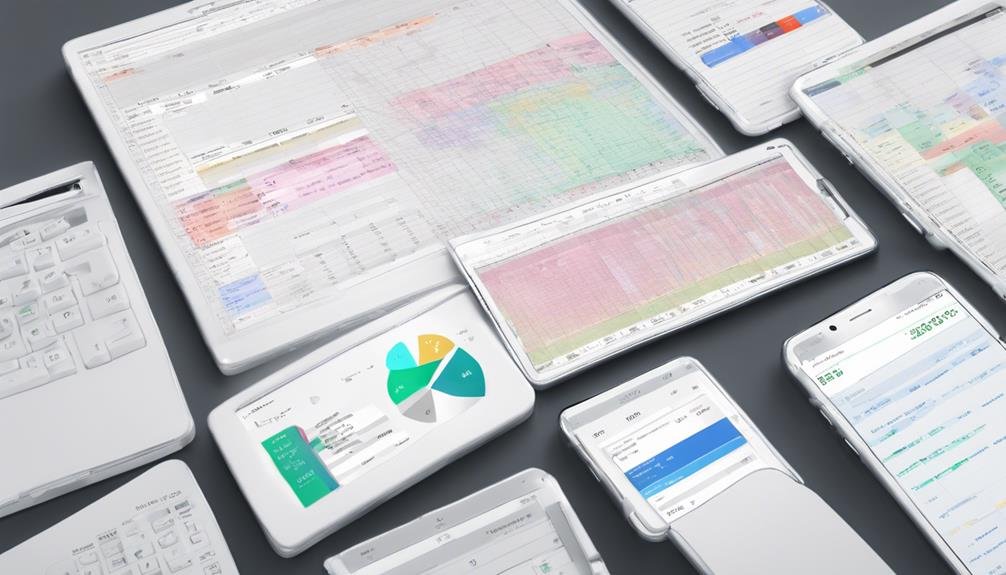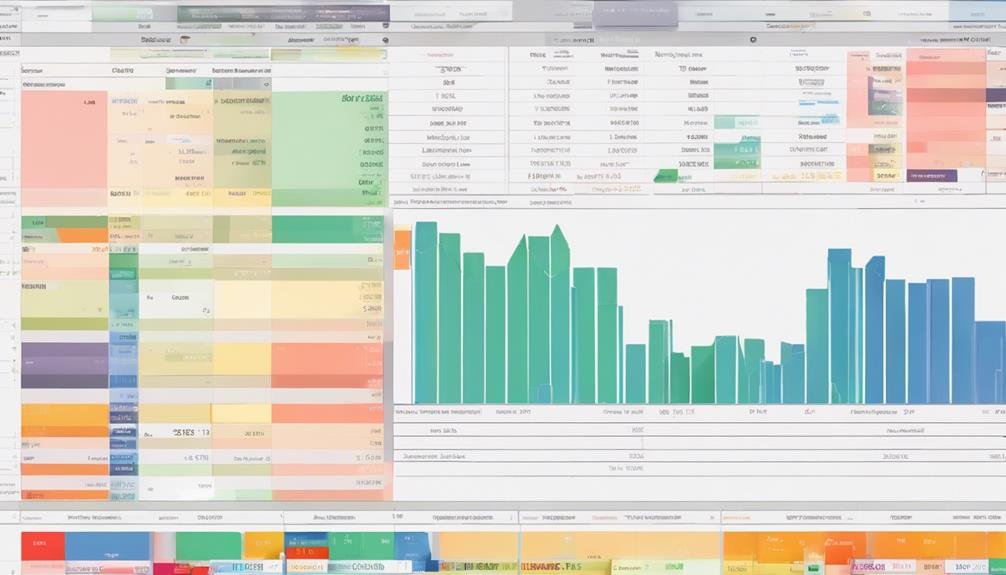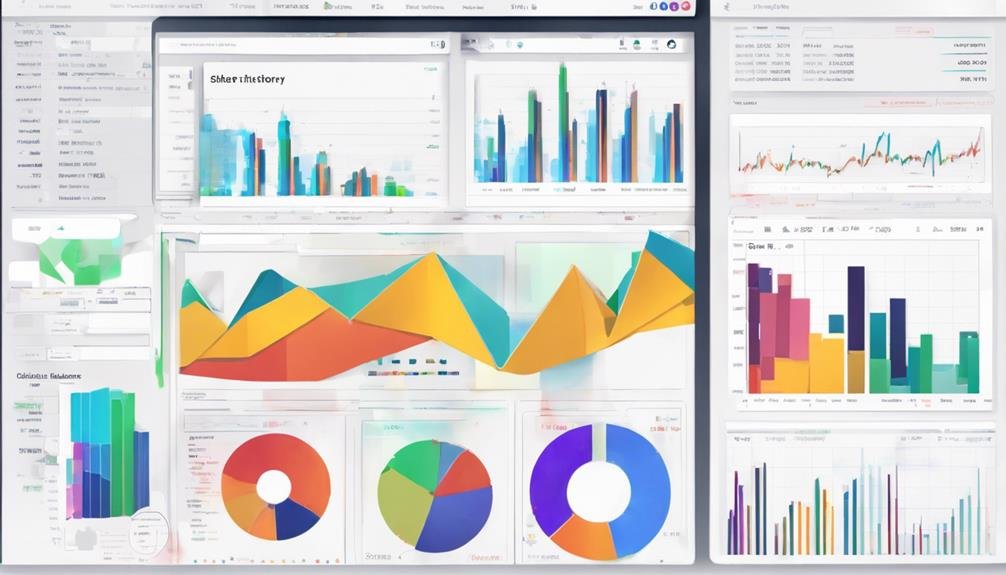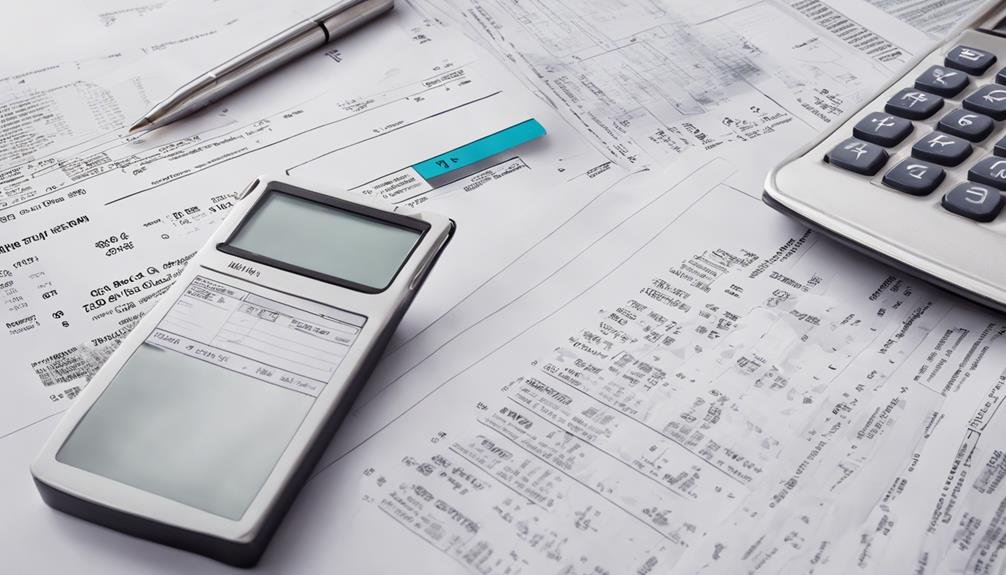When trading Ethereum, keeping meticulous tax records is crucial. Record trade type (buying, selling, exchanging), fees, staking rewards, and donations. Organize transactions by date, type, amount, price, and exchange to calculate tax accurately. Differentiate short-term and long-term trades, noting fees, IDs, and addresses. Factors in staking income are fair market value and cost basis.
Use tools like Coinpanda for efficient record-keeping with automated data import and tax reporting features. Guarantee compliance by documenting purchases, sales, exchanges, and transfers accurately. By maintaining detailed records, you ensure IRS compliance and accurate tax reporting. Mastering these essentials is critical to handling complexities in e-wallet trading.
Brief Overview of Maintaining Tax Records For Ethereum Trades
- Record trade type, fees, staking rewards, donations, and gifts.
- Organize transactions by date, type, amount, and fees.
- Use tools like Coinpanda for efficient tracking.
- Ensure compliance by documenting all transactions.
- Calculate gains/losses, staking rewards, and fair market value.
Importance of Ethereum Trade Records
Keeping accurate Ethereum trade records is not just a good practice, it’s essential for effectively calculating capital gains and losses. Detailed records are critical in determining the cost basis of your Ethereum transactions for tax reporting purposes. By maintaining organized records of your trades, you guarantee compliance with IRS regulations and accurate tax filings. Tracking your trades not only helps in accurately reporting gains but also simplifies calculating taxable income derived from Ethereum transactions.
Failing to keep thorough trade records can lead to potential issues with the IRS and may result in penalties for non-compliance. Hence, it is imperative to prioritize trade tracking and record-keeping to stay on top of your tax obligations and financial responsibilities. Make sure your records are up-to-date, organized, and easily accessible to facilitate smooth tax reporting and ensure that you are accurately accounting for your Ethereum trades.
Key Information to Record

To effectively track your Ethereum transactions for tax reporting purposes, ensure you meticulously record critical details such as each trade’s date, time, and value. Here are some essential pieces of information to include in your tax records:
- Trade Type: Note whether the transaction involved buying, selling, or exchanging Ethereum, and specify the wallet or exchange used for the trade.
- Fees: Record any fees paid for each Ethereum trade, as these are vital for accurately calculating gains or losses when reporting taxes.
- Staking Rewards: Document any staking rewards earned from Ethereum activities, as these rewards are taxable income and must be reported.
- Donations and Gifts: Maintain a detailed log of any Ethereum donations or gifts made, including information about the recipient, as these may have tax implications that need to be accounted for in your records.
Organizing Your Ethereum Transactions

Organize your Ethereum transactions efficiently by categorizing them based on date, trade type, amount, price, and exchange for streamlined tax reporting. Keeping track of these details is not just important, it’s essential for accurately calculating your tax liability on Crypto transactions. When reporting your Ethereum trades for tax purposes, you must consider capital gains or losses. It’s vital to distinguish between short-term and long-term trades to guarantee the correct tax treatment. Include fees, transaction IDs, and wallet addresses for each trade.
Remember to factor in staking income, fair market value, and cost basis when determining your tax obligations. Utilize tax software or spreadsheets like Coinpanda to simplify the process and ensure accurate reporting. Regularly updating and reconciling your Ethereum trade records is essential for complying with tax regulations and avoiding penalties for incorrect reporting. Stay diligent in recording each taxable event to maintain a clear financial history for tax purposes.
Tools for Efficient Record-Keeping

Consider utilizing specialized platforms like Coinpanda, Koinly, or TokenTax to streamline tracking your Ethereum trades for efficient record-keeping. These tools can significantly assist you in managing your cryptocurrency transactions and ensuring accurate tax reporting. Here are some key features to look out for when using these platforms:
- Automated Import: These platforms can automatically import trade data from various exchanges, saving you time and ensuring accuracy in your record-keeping.
- Detailed Cost Basis Calculations: Utilize tools that offer in-depth cost basis calculations to accurately determine your capital gains or losses when filing taxes.
- Real-Time Portfolio Tracking: Stay updated on your portfolio’s performance with live tracking features to make informed investment decisions.
- Tax Reporting Capabilities: Look for platforms that provide thorough tax reports in line with IRS guidance, simplifying the tax filing process and ensuring compliance with tax laws.
Ensuring Compliance With Tax Laws

Ensure your Ethereum trade tax records are meticulously maintained to adhere to tax laws accurately. Keeping detailed records of your Ethereum trades, including purchases, sales, exchanges, and transfers, is not just a suggestion, it’s a requirement for proper tax reporting. By documenting dates, amounts, prices, and transaction IDs, you can precisely calculate capital gains or losses. Additionally, remember to record Ethereum staking rewards and determine their fair market value at the time of receipt for income tax purposes. Maintaining compliance with cryptocurrency tax laws and regulations is crucial for your financial transparency and peace of mind.
Consider using cryptocurrency tax software such as Coinpanda to streamline your record-keeping process. These tools can automate the tracking of your Ethereum trades and generate thorough reports for tax reporting. Regularly reviewing and updating your tax records is vital to ensure compliance with cryptocurrency tax laws and regulations.
Frequently Asked Questions
How Do I Record Crypto Trades for Taxes?
To record crypto trades for taxes, track every trade in detail:
- Type, wallet used, amounts, fees, and dates.
- Recording software like Coinpanda can be used for accurate tax reporting.
- Document all transaction details for capital gains and income reporting.
What Do I Need to Keep Track of for Crypto Taxes?
You need to keep track of all crypto transactions for tax implications. Record keeping is vital for reporting requirements, capital gains, and IRS guidelines. Tracking profits, exchange data, and portfolio analysis are essential for maximizing tax deductions.
Does IRS Know My Crypto Trades?
The IRS stays informed about your crypto trades to guarantee tax compliance. Maintaining detailed records of transactions is crucial to avoid penalties. Understand the implications of government oversight, audit risks, and regulatory compliance for financial transparency.
What Is the Best Way to Report Taxes on Crypto?
When verifying taxes on crypto, guarantee accurate reporting for tax implications, reporting income from cryptocurrency transactions, capital gains, tax liabilities, and deductions. Stay informed about tax regulations and consult professionals for best practices in managing crypto investments.
Conclusion
You now have a solid grasp on the importance of keeping detailed records of your Ethereum trades. Remember, the irony lies in the intricate realm of cryptocurrency taxation, which demands meticulous attention to detail, but who said exploring the financial landscape was easy? Following the tips outlined in this guide, you’ll be well-equipped to stay compliant with tax laws and guarantee a smooth sailing journey through Ethereum trading. Happy trading!










